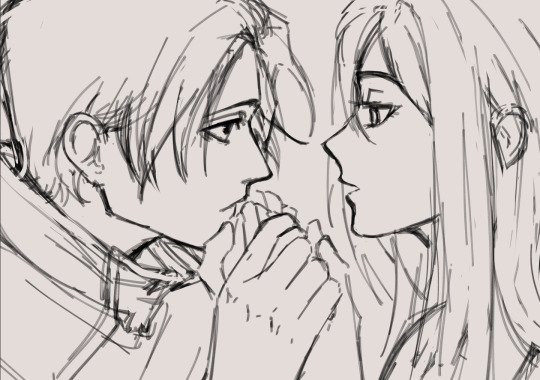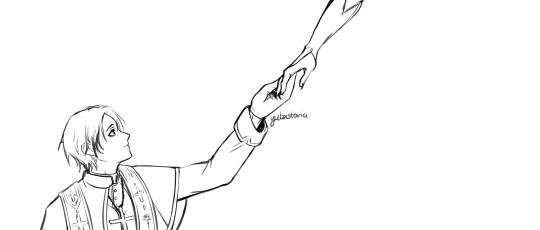#Enlightenment and progress
Explore tagged Tumblr posts
Text
Opinion | Lessons from Alexandria: A Cautionary Tale for Modern American Politics
By Jet Espinosa In a city once hailed as a beacon of knowledge and tolerance, Alexandria drew people from across the ancient world. It was a place where scholars, thinkers, and believers from diverse backgrounds came to share and preserve their wisdom. With libraries that housed invaluable knowledge in science, philosophy, medicine, and the arts, Alexandria was a symbol of progress and…

View On WordPress
#Alexandria library destruction#American democracy#Ancient Alexandria#Cultural diversity#Enlightenment and progress#Freedom of belief#Historical cautionary tales#History repeating itself#Intellectual freedom#Knowledge and tolerance#Lessons from ancient civilizations#Lessons from history#Modern American politics#Political power and religion#Politics and religion#Protecting democracy#Religious influence in politics#Religious tolerance#Role of religion in government#Separation of church and state
0 notes
Note
weird question: are you the time traveled reincarnation of alex hirsch?
probably not because if i was alex hirsch i probably wouldn't be making posts about Bill's fetishes
#(or maybe that means in this life i've progressed one step closer to enlightenment)#(i realize this reply only makes sense to people who have the setting to see mature posts turned on.)#anonymous#ask
56 notes
·
View notes
Text
"the carians accept and respect the albinaurics, we know bc they use them as servants!!" is not the Progressive Win some folks seem to think it is 🧐
#i mean loretta doesnt lead the albinaurics to the haligtree if caria is just so hunky dory for them lol#like caria before its union with the GO has clearly committed fewer atrocities#you dont need to flail at their weird treatment of albinaurics as a point of how they are some equitable and inclusive paradise#esp bc....post radagon caria was not exactly any better than the order#and participated in its atrocities#rykard did NOT become an inquisitor of the order and commit crimes against humanity to be forgotten like this!!#rennala sent rellana away to go slaughter hornsent **with her blessing**#not her disdain lol#stop looking for the progressive enlightened paradise!!#that is not what the game is about!!
24 notes
·
View notes
Text

yutahisu to the bridge of me and ur mama by childish gambino where he goes u really got a hold on me, so this isn't just puppy love...LET ME COOK
#attack on titan#historia reiss#shingeki no kyojin#aot#snk#historia aot#aot fanart#snk historia#historia snk#aot historia#yuta okkotsu#yuuta okkotsu#okkotsu yuta#okkotsu yuuta#jjk yuta#jjk yuuta#i love yuta#i love historia#i love yutahisu#yutahisu#yutastoria#hisuyuta#yuutahisu#yuutastoria#hisuyuuta#no one gets yuutahisu like i do but i plan to push this agenda this ship i need to enlighten the people of how amazing theyd be together#digital art#work in progress#sketch#digital sketch
29 notes
·
View notes
Text
Death - Flesh And The Power It Holds
#Death#The Sound of Perseverance#Flesh And The Power It Holds#Release date: August 31st 1998#Full-length#Genre: Death Metal (early); Progressive Death Metal (later)#Lyrical themes: Death Gore Horror (early); Society Enlightenment (later)#USA
55 notes
·
View notes
Text



25-11-2023, part one:
I got my first whole fleece! It's from a Walliser Schwarznase (Walliser Blacknose). I already got rid of all the dirty and matted parts (pictured is the whole fleece before cleaning), and I took the very dirty edges off to do an experiment on cleaning.
The length of the fibers is +- 10 cm and the locks are very soft. There is quite a bit of vegetable matter, but I think that's to be expected. Look at those curls though! So pretty! I'm thinking about keeping some locks to use as texture while spinning.
Currently I'm scouring some of the dirty sides in warm water and dish soap, to see if they can be used for a test spin. A lot of brown water has been discarded already, so it looks to be cleaning up nicely. I hope it won't mat :)
The rest of the fleece has been rolled up in an old blanket and stored for now, untill the test spin has been done.
Now I have to see if I can borrow a carder from someone (or hand cards), so I can try to spin some up! (Once it is clean and dry, that is). Goal will probably be to spin a sweather out of this.
Updates wil follow in the next days/weeks! I'm very excited :D
(Part two)
#fiber art#spinning#scouring#wool#fleece#handspinning#work in progress#sheep#walliser schwarznase#fiber crafts#hand spinning#spinning wheel#wool spinning#lights enlightenment
96 notes
·
View notes
Text
Seen a bit about ‘hysteria’ in Nosferatu (2024) but nothing really digging into what the film is doing with neuroticism. Let’s get Jungian. Spoilers and musings below the cut.
The central tragedy here isn’t that Orlok is a monster who cannot love or young lovers forever divided. The tragedy is love with the disturbing heart of passion cut out of it and passion that can only be fully embraced in death. The world itself is broken in a way we see reflected in the characters.
Ellen pursues. She calls out to the world with such a hunger that an ancient undead monster hears her and is irresistibly drawn in. She pursues Thomas. She initiates their sexual relations and begs for his attention and craves his company. He’s an acceptable outlet for her desires and the promise of a normal life, not just the man she loves. Orlok is the hunger itself. The cruelty of her dilemma rests in the fact that Thomas loves Ellen but is incapable of satiating her or even recognizing her desires, and Orlok is nothing but appetite and incapable of love. Ellen is love and desire, both embraced with ferocity and both rejected by the world. But she will not be denied or divided in herself. I’m paraphrasing loosely from memory, but it’s key that she tells von Franz that she’s never done any wrong, only lived in accordance with her nature.
Neurosis is social and cultural in this context. It’s embedded in the patriarchal domesticating interests of the setting. Thomas is nearly repression itself through no real fault of his own. He’s a husband. A decent man. In his figure we see the safe boundaries that hem in the potentially dangerous desires represented in Ellen and Orlok. He’s delighted to have “such a dirty wife” but shrinks from the real face of her desires. Thomas loves Ellen, but he retreats and denies and treats her libidinal qualities as ‘dirty’ and flawed aspects that must be repressed and avoided and sublimated. For all Ellen’s seizing and moaning and ‘hysterics’, Thomas is also neurotic in his retreat from the libidinal.
All passion is a challenge to fate, and what it does cannot be undone. Fear of fate is a very understandable phenomenon, for it is incalculable, immeasurable, full of unknown dangers. The perpetual hesitation of the neurotic to launch out into life is readily explained by his desire to stand aside so as not to get involved in the dangerous struggle for existence. But anyone who refuses to experience life must stifle his desire to live—in other words, he must commit partial suicide. This explains the death-fantasies that usually accompany the renunciation of desire. - Jung Vol. 5
We shouldn’t make the mistake of reducing the libidinal here to purely sex. Rather the libidinal is the all encompassing, messy pursuit of life: it’s the passion that drives creation, the desire for meaning, the wholehearted engagement with the entire range of human experience. Likewise the death drive exists here, but the desire for annihilation is simply the inherent negative to the libidinal positive. Hysteria or madness is the overwhelming outpouring of thwarted passion. It’s an attempt to live. Thomas’s repressed neuroticism is antithetical to the way Ellen moves and exists within the world but no less neurotic for that. His genteel repression and devotion to hierarchies are both attempts to live within a world that demands repression of the negative and retreats from passion that make him specifically ill-equipped to grapple with true darkness. The same darkness that Ellen is more than a match for.
And this is where we see clearly that these characters belong to two different realms that slowly converge over the course of the film. Ellen is trapped in a realm that has no space for her desires and so she is left to dream of death. Thomas hesitates until he falls from a literal ledge in a very literal partial suicide (poignantly still accidental to some degree: he must slip to take the leap). That he is revived by the church itself, a kind of resurrection by that ultimate domesticating force, highlights his distance from the realm occupied by Orlok and Ellen. His attempts to “launch out into the world” are to be as frustrated as Ellen’s in their own way. The world is already broken and must be remade. He is built for that other, more domesticated world, no matter how much he loves Ellen.
The power of God is menaced by the seductions of passion; heaven is threatened with a second fall of angels. If we translate this projection back into the psychological sphere from whence it came, it would mean that the good and rational Power which rules the world with wise laws is threatened by the chaotic, primitive force of passion. Therefore passion must be exterminated, which means, in mythological projection, that the race of Cain and the whole sinful world must be wiped out, root and branch, by the Flood. That is the inevitable result of a passion that sweeps away all barriers. […] As a power which transcends consciousness the libido is by nature daemonic: it is both God and devil. If evil were to be utterly destroyed, everything daemonic, including God himself, would suffer a grievous loss; it would be like performing an amputation on the body of the Deity. - Jung Vol. 5
What we see in Nosferatu is the fragments of what’s left behind when the libidinal drive is thwarted and abjected. We see divine amputations. We see it in the decent men who try to fight back a darkness they can’t understand or truly combat because they’ve cut it off and cast it out from themselves. We see it in Orlok, all the cast-off desires of the world reduced to pure destructive appetite. And in Ellen we see the cost of the abjection, in her passion reduced to ‘hysteria’. But only in Ellen does passion show its true and whole face in all its courage and devotion and madness.
So Ellen must die. She must die with Orlok because this world has already disfigured the divine body by rejecting and repressing that most fundamental of drives. But the repressed always returns, and it is always hungry. So Ellen plays the priestess. Unlike Orlok who has rejected death and thus impoverishes his desires into sadistic appetite, Ellen embraces her nature and her desires and death. No hesitation or halfway measures. She remains wholly and truly herself as she becomes the flood, a sacrament, a blood sacrifice, that wipes out the “chaotic and primitive forces of passion” leaving the world itself the poorer, if safer, for it.
Notes:
Ellen has “too much blood” both practically so she can play her role and metaphorically so that she can embody every nuance of the libidinal drive. Blood is life.
The virgin and the stallion, potent symbols of life, can locate a vampire.
Iron kills the undead (as it does fae and other undomesticated relics) because it is the symbol of man made power over the earth itself.
The blood sacrifice is also the marriage bed.
I could keep going, but you get it. The film is really consistent with all of this.
I won’t pretend to be particularly invested in what Jung intended with his framework. His intents are far less interesting than the artistic interpretations that give us films like Nosferatu. He certainly thought the soul was hermaphrodite, and we see that clearly in Eggers’s work here (particularly in the Wuthering Heights influence on our central romance/s).
#alright I did the thing#this might sound like I’m picking on Thomas#I like him. he really tried. he’s also got a specific role to play here#the gothic is bound up in anxieties over what we lose to domesticating forces of ‘progress’#specifically in the enlightenment context#Jung gave artists a lot of creative ideas for seeing this as a cyclical dramatic conflict#and here we are#narrative analysis#Nosferatu
17 notes
·
View notes
Text
The most meaningful words
Liberté, Egalité, Fraternité
All men are created equal.
Die Würde des Menschen ist unantastbar.
There are surely more statements that summarize this thought that all people are in the end equal in worth. That they are humans and should be treated as humans. All the same. With some undeniable human rights.
It has been more than 200 years some of these ideas have been put to paper. Some of them are only as young as the end of WWII. But they show that this idea has manifested in peoples minds and hearts.
And yes in it you can also find the true spirit of some christian teachings of viewing your fellow humans as your neighbors, someone you have an undeniable connection and a responsibility to treat as you want to be treated yourself.
It is if you want as old as humanity itself. Stuck in our minds and hearts from a time when indeed we were all neighbors in our little or further communities.
Because we are at our core in biology and evolution a communal species. That thrives and suffers together.
Yet over thousands of years there has been the competing ideology that „Some people are better than others.“
I do not want to delve into the question why or where its origin lies. But the fact remains that todays world is shaped by the competing ideas of „Everyone same in worth“ and „Some people better than others.“
At the time of Enlightenment 200 years ago when Liberté, Egalité, Fraternité and All men are created equal. were written down, it very much was a world of „Some people are better than others“. It permeated societies resulting in things like the feudal system, people neatly ordered into „good, better, best“ with the monarch at the top as the ultimate „best“. And yet it was also a time where the order of things were questioned. Where it became more than apparent that the monarch is surely not „the best“ and „the worst“ was at least worth as much as everyone else.
So the idea of everyone being equal found its way into peoples hearts and minds again and took root anew and bore fruit, and so these declarations were written.
It does not matter who people at the time saw as included in the „All“ or for whom to give „Liberté, Egalité, Fraternité“, because it is not specified in the words finding their way to the paper.
It is an idea written down. An ideal.
It does not need to reflect the true state of things.
Except that it does.
Ever since.
It is the purest of ideals as ideals should be, not as something that is, but as something that is meant to be achieved. The blueprint reality has to be held up to, compared to and evaluated to.
Are we already in a world where this ideal has been achieved? No? Then keep working.
And this, this single ideal, idea, concept has shaped our world the past 200 years. The past 200 years this idea has battled against the prevailing concept of „Some people are better than others“. The past 200 years fights have been won. Fights have been lost. But bit by bit, decade by decade we have inched closer and closer to fit our world to the ideal.
More people have freedom. More people have rights. Less people killed. More people saved. More humane punishments. More diplomatic agreements. A mindset that is more peaceful than it has been in the past.
For 200 years there has been social change to fit our world to that ideal of „All humans are equal in worth.“ Slowly, step by step but always progressing.
200 years is just a blip in human evolution. Even social evolution. There are ups and downs, steps forwards and steps back, but it’s undeniable progress. Progress away from putting humans into categories of „better and worse“ and towards filling just one category „human“.
And such the feather, the word, has indeed become mightier than any sword. You can not kill ideas.
200 years is just a blip in human time. So do not expect the world to match the ideal yet. It won’t. It will disappoint you. It will make you miss the progress that has been achieved.
We are still battling the idea of „some people better“, maybe we always will. But we are making progress. We are succeeding. We are winning step by step. Even when the world looks dark and progress seems to revert, it is just a slowing and not a halt.
For the ideal of „everyone being the same in worth“ is humanity itself. It is rooted in the very core of our biology and evolution. It is planted in our hearts and our minds. And even if it withers down and falls dormant for a time. It will sprout again and again like the most loathsome, most awesome weed.
That is the true meaning and true legacy of the words
Liberté, Egalité, Fraternité
All men are created equal.
Die Würde des Menschen ist unantastbar.
#democracy#french revolution#18th century#revolution#human evolution#capitalism#social progress#humanity#enlightenment#politics#social change#positivity#musings on the world#human rights#stubborn optimism#patterns of the world
18 notes
·
View notes
Quote
On the way from mythology to logistics thought has lost the element of self-reflection and today machinery disables men even as it nurtures them.
Max Horkheimer & Theodor W. Adorno, Dialectic of Enlightenment
#philosophy#quotes#Max Horkheimer & Theodor W. Adorno#Dialectic of Enlightenment#reflection#awareness#thought#thinking#technology#progress
110 notes
·
View notes
Note
ftm jay who first comes out to ras because he knows ras has done 7000 worse things to care
jay: i am not a woman.
ras: ..... alright. what do you wish to be called?
jay: captain.
ras: .... i meant gender-wise.
jay: the fucks a gennderwhize.
ras: ..... i see. if thats okay, we shall settle with he/him for you. and burn all previous records of you.
jay: sounds fun.
ras: would you like to change your name as well?
jay: no.
ras: ....... okay
#evil jay just.. not getting most of societal constructs unless they were categorised by the admin#ras being an old fuck obsessed with traditions except cinder and jordana bombard him with progressive theorem because its fun#every conversation with walker means either reaching nirvana levels of enlightenment or losing every bit of sanity in left in your brain#jay walker#jay ninjago#*ask#anon#ras ninjago#ras' convos with jay are like talking to a weirdly wise 5 year old and jay definitely does that on purpose most of the time
17 notes
·
View notes
Text
Opinion | Lessons from Alexandria: A Cautionary Tale for Modern American Politics
By Jet Espinosa In a city once hailed as a beacon of knowledge and tolerance, Alexandria drew people from across the ancient world. It was a place where scholars, thinkers, and believers from diverse backgrounds came to share and preserve their wisdom. With libraries that housed invaluable knowledge in science, philosophy, medicine, and the arts, Alexandria was a symbol of progress and…

View On WordPress
#Alexandria library destruction#American democracy#Ancient Alexandria#Cultural diversity#Enlightenment and progress#Freedom of belief#Historical cautionary tales#History repeating itself#Intellectual freedom#Knowledge and tolerance#Lessons from ancient civilizations#Lessons from history#Modern American politics#Political power and religion#Politics and religion#Protecting democracy#Religious influence in politics#Religious tolerance#Role of religion in government#Separation of church and state
0 notes
Text
“Books permit us to voyage through time, to tap the wisdom of our ancestors. The library connects us with the insight and knowledge, painfully extracted from Nature, of the greatest minds that ever were, with the best teachers, drawn from the entire planet and from all our history, to instruct us without tiring, and to inspire us to make our own contribution to the collective knowledge of the human species. I think the health of our civilization, the depth of our awareness about the underpinnings of our culture and our concern for the future can all be tested by how well we support our libraries.” ― Carl Sagan, Cosmos
#carl sagan#humanity#humans#reading#atypicalreads#quotes#science#libraries#collective knowledge#books#time travel#wisdom of ancestors#cultural heritage#education#inspiration#learning#civilization#awareness#future generations#knowledge preservation#history#nature#greatest minds#collective progress#intellectual growth#societal health#cosmos#enlightenment#teachers#connection
4 notes
·
View notes
Text

"I was young and sweet,
and then something happened.
Something overwhelming. Something everlasting."
(quote from: "Crying During Sex" by Ethel Cain. thank you @into-the-undercroft for whipping my ass to stay on track, ily.)
#i was literally just listening to this song on repeat and well. those lines fit pretty well. imo.#also thank you @crime-in-progress because your talking to garden snakes HC still inspires me. it's too fucking cute. <3#... this took way too long. embarrassingly long.#uhhhh#i and my whole being are mush#now let me drown myself in whisky#it's not much but it's honest work for someone that's not especially good at art lmfao#how do you do b/w shading please someone enlighten me because obviously. i don't get it.#fanart#hogwarts legacy#hl#ominis gaunt#bug.art
79 notes
·
View notes
Text
“I must study politics and war, that our sons may have liberty to study mathematics and philosophy. Our sons ought to study mathematics and philosophy, geography, natural history and naval architecture, navigation, commerce and agriculture in order to give their children a right to study painting, poetry, music, architecture, statuary, tapestry and porcelain.” - John Quincy Adams
23 notes
·
View notes
Text

this also a wip, yutahisu priest x demon au hehehehehehehehehe, heavily referenced that one clip from diablo 4 where lilith is summoned
#attack on titan#historia reiss#shingeki no kyojin#aot#snk#historia aot#aot fanart#snk historia#historia snk#aot historia#yuta okkotsu#yuuta okkotsu#okkotsu yuta#okkotsu yuuta#jjk yuta#jjk yuuta#i love yuta#i love historia#i love yutahisu#yutahisu#yutastoria#hisuyuta#yuutahisu#yuutastoria#hisuyuuta#no one gets yuutahisu like i do but i plan to push this agenda this ship i need to enlighten the people of how amazing theyd be together#digital art#work in progress#sketch#digital sketch
13 notes
·
View notes
Text
Death - Spiritual Healing
#Death#Spiritual Healing#self titled#Full-length#Release date:#February 16th#1990#Genre:#Death Metal (early); Progressive Death Metal (later)#Themes:#Gore#Horror (early); Society#Enlightenment (later)#USA
47 notes
·
View notes